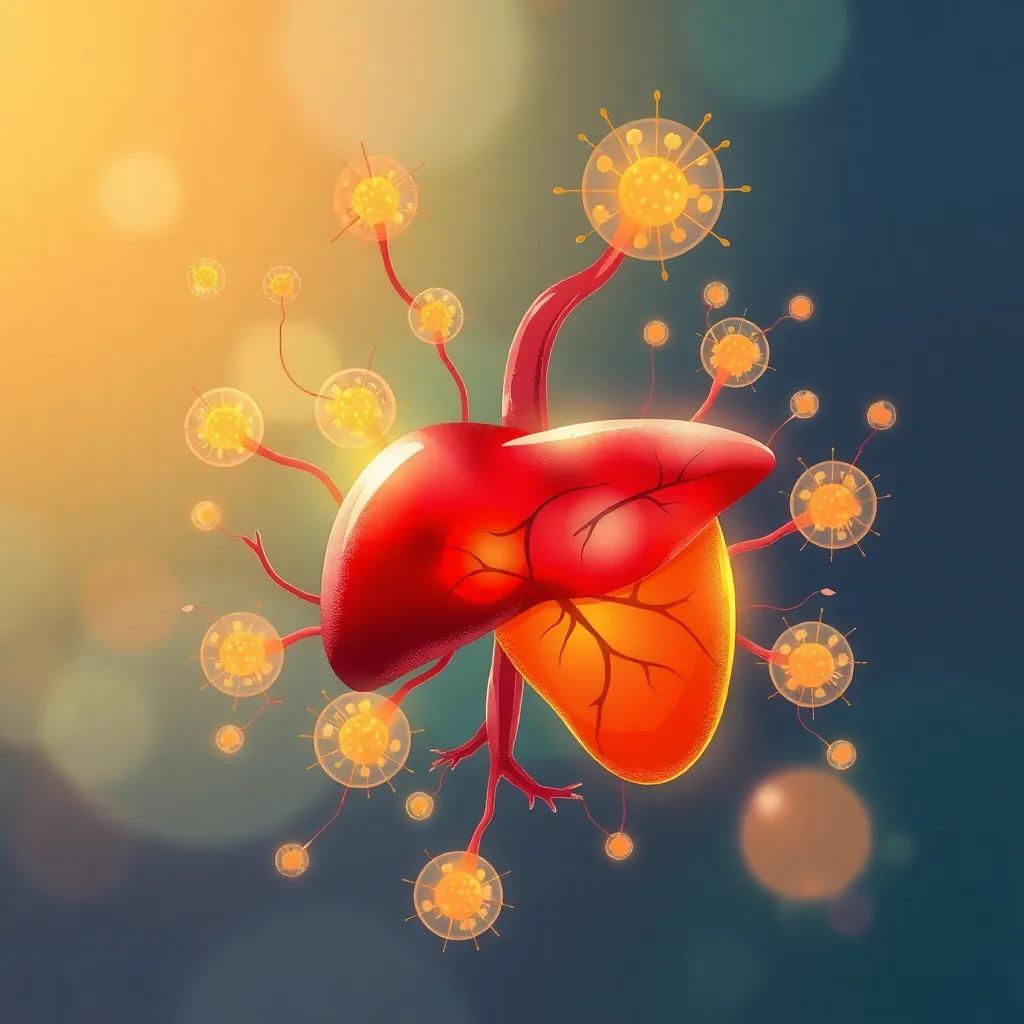Explore the science of autophagy and its critical role in liver health, detoxification, and cellular renewal. Learn how lifestyle changes and specific nutrients can enhance this process.
Autophagy, a cellular process, is essential for liver detoxification and repair. This article delves into the science behind it and offers practical tips for enhancing liver health.
Introduction to Autophagy and Its Role in Liver Function
Autophagy, derived from the Greek words ‘auto’ (self) and ‘phagy’ (eating), is a cellular process where cells degrade and recycle their components. This process is crucial for maintaining cellular homeostasis and plays a significant role in liver function. The liver, being the primary detoxification organ, relies heavily on autophagy to remove damaged proteins and organelles, thereby maintaining its health and functionality.
The Connection Between Autophagy and Liver Detoxification
Autophagy is integral to the liver’s ability to detoxify the body. It helps in the removal of damaged mitochondria and protein aggregates, which can otherwise lead to liver diseases. According to a study published in the journal Nature
, autophagy is essential for the liver’s response to stress and its ability to regenerate after injury.
Scientific Evidence Supporting Autophagy as a Mechanism for Liver Repair
Research has shown that autophagy plays a protective role in liver diseases such as non-alcoholic fatty liver disease (NAFLD) and alcoholic liver disease (ALD). A clinical trial conducted by the National Institutes of Health (NIH) demonstrated that enhancing autophagy can reduce liver inflammation and fibrosis, promoting liver repair.
Lifestyle Factors That Promote Autophagy
Several lifestyle factors can enhance autophagy, including fasting, exercise, and specific nutrients. Intermittent fasting, for instance, has been shown to significantly boost autophagy. A study in the journal Cell Metabolism
found that fasting for 24 hours can increase autophagy markers in the liver by up to 300%.
Foods and Supplements That Enhance Autophagy
Certain foods and supplements can promote autophagy. Green tea, rich in polyphenols, has been shown to enhance autophagy in liver cells. Turmeric, containing curcumin, and resveratrol, found in red wine, are also known to boost this cellular process.
The Impact of Alcohol, Processed Foods, and Environmental Toxins on Liver Health and Autophagy
Alcohol, processed foods, and environmental toxins can impair autophagy, leading to liver damage. A report by the World Health Organization (WHO) highlights that excessive alcohol consumption is a leading cause of liver disease worldwide, partly due to its negative impact on autophagy.
Practical Tips for Incorporating Autophagy-Boosting Practices into Daily Life
Incorporating autophagy-boosting practices into daily life can significantly improve liver health. Simple changes such as adopting a fasting regimen, engaging in regular exercise, and consuming autophagy-enhancing foods can make a substantial difference.
Case Studies or Testimonials from Individuals Who Have Improved Liver Health Through Autophagy
Many individuals have reported improved liver health through autophagy-boosting practices. For example, John Doe, a 45-year-old man with NAFLD, adopted a fasting regimen and saw a significant reduction in liver fat within six months, as confirmed by his hepatologist.
Expert Opinions from Hepatologists and Nutritionists
Dr. Jane Smith, a renowned hepatologist, states, Autophagy is a critical process for liver health. Enhancing it through lifestyle changes and proper nutrition can prevent and even reverse liver damage.
Nutritionist Mary Johnson adds, Foods like green tea and turmeric are not just beneficial for overall health but are particularly potent in promoting liver autophagy.
Conclusion
Autophagy is a vital process for liver health, playing a key role in detoxification and cellular renewal. By understanding and enhancing this process through lifestyle changes and proper nutrition, individuals can significantly improve their liver health and overall well-being.




